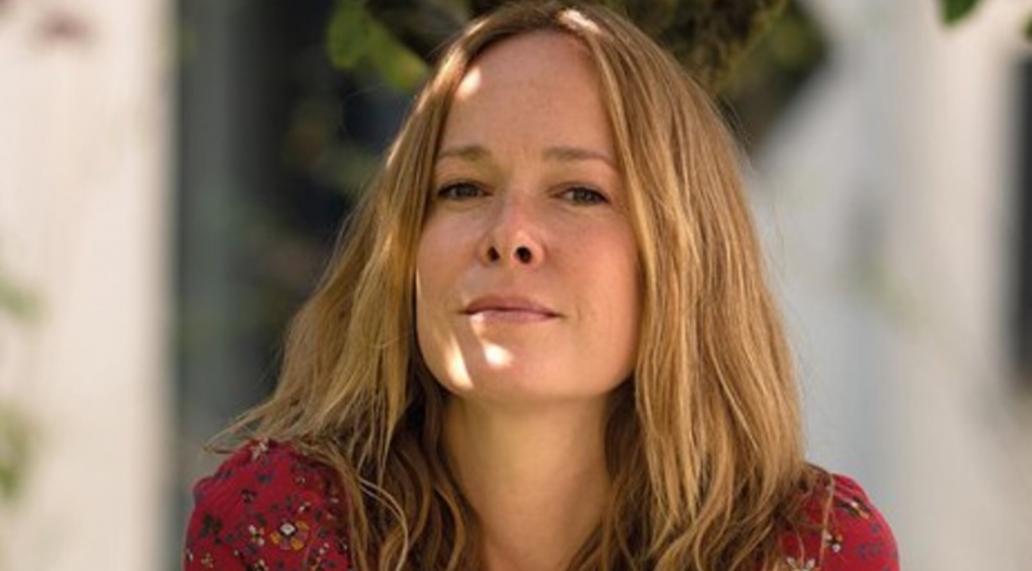
The interview was conducted by Nicole Beste-Fopma.
Sophie Rosentreter describes herself as a "dementia activist." In 2010, she founded her company "Ilse's Wide World," which on one hand supports relatives and caregivers of people with dementia and on the other hand makes films for people with dementia. Her goal: to approach dementia with ease.
The path to it was rather unusual. In 1992, she began her international career on the catwalks of the world with the model competition "Model '92". In 1998, she won a casting for MTV presenters and two years later she became an external reporter for Big Brother. From 2004, she switched to working behind the camera and works as a freelance editor for various film and television productions. For famPLUS, she will be working as a speaker for lectures and workshops in the future.
We talked to Sophie Rosentreter about her career and how she supports people in facing dementia with ease.
Cicero headlined "From Top Model to Elderly Caregiver." How did it come about that you decided to say goodbye to life as a model and become self-employed with "Ilse's Wide World"?
Between being a model and a geriatric nurse, there was also a period as an MTV presenter and editor. During this time, I learned to make films. The idea for "Ilse's Wide World" came to me when my grandmother developed Alzheimer's. In her final months of life, she was often "parked" in front of the television in the nursing home. I noticed that the films didn't fit into my grandmother's world. So, I wanted to make films for her.
At my grandmother's grave, I then met Dr. Jens Bruder, a gerontologist and co-founder of the Alzheimer's Society. He found the idea exciting. He introduced me to music therapists. In turn, they introduced me to caregivers, and so the idea kept growing.
When you think of a "caregiver for the elderly," you usually imagine a person who takes care of people in need of care – providing them with food, washing, dressing. But that's not what you do. How do you help those with dementia and their relatives?
I prefer to refer to people as people with dementia-related changes. Helge Rohra, who is herself demented, describes herself as "touched by dementia." She feels inspired by dementia and has found a new meaning in life. I like this thought.
I see myself as a bridge builder between those affected and caregivers by supporting and educating relatives and professional caregivers. With films, lectures, seminars, and books. With my films for people with dementia and their families, I bring those affected together – ideally, they spend a pleasant moment together. They recall the past, start conversations again, and meet each other on a heartfelt and, importantly, equal level. They forget the daily care routine.
With the DAK, I am doing the film project "Pflegeleicht." Monthly, there is an educational film on a topic related to dementia. For example, "Driving and Dementia" or "Sexuality and Dementia." I also let affected individuals speak for themselves about what dementia feels like. Furthermore, I have written a book and co-authored others.
I'm trying to show possibilities and solutions by explaining how a person with dementia feels and what still reaches them. But of course, I always make it clear that there is no one-size-fits-all solution. We must learn to trust ourselves again to some extent and return to intuition combined with knowledge. Then we can give more space to feelings and be in the present together.
My mother died two years and one day after my grandmother. I believe she also passed away due to the overwhelming burden of caregiving. I had to take care of her in the last weeks. Physically as well. It broke my heart. It really hurts when you have to care for someone very close to you. Not everyone can do it. I couldn't do it well at that moment. The images from that time still pain me. Also for this reason, one must tip their hat to the elderly caregivers who look after our parents.
They make films for people with dementia. What is different about these films compared to other films?
My films have a very special visual language, are very slow, and primarily convey emotions. There are only a few text modules; instead, the images are accompanied by classical music. Moreover, the storytelling is mostly done from the "I-perspective." For example, you see a hand stroking a dog. Through the slowness of the images, the audience can empathize and let themselves go. All films show situations and things that we all know from our lives: dogs, our loyal friends. The garden where a family plays or a passionate gardener takes care of the flowers. A zoo where two mothers spend the day with their children. The domestic bliss of the 60s and 70s. We also offer a musical film where the musicians play directly to the camera and actively encourage singing along. At the end, a gramophone is shown, and you see how it is operated. Together, people can remember those times.
Each film is divided into many small episodes, each lasting between three and eight minutes. This gives the accompanying person the opportunity to delve deeper into individual episodes—through photo cards or other self-devised activities.
You were just talking about your photo cards of dogs, gardens, or music. Why are images so important?
The photo cards complement the films and are important for several reasons. Firstly, because they complement each respective film. Through the images, the films can be explored in more depth. At the same time, the photo cards engage multiple senses, including the sense of touch, and people need to move: take the card, turn it over. Movement is very important for people with dementia for occupational therapy reasons. The more the "self" is lost in the head, the more I need to feel myself through the body. Every little movement helps with this.
With your company "Ilses weite Welt GmbH," you want to do much more. Among other things, you want to give the topic of "aging" a new image. How do you plan to do that?
By bringing together many puzzle pieces. There is no single solution for this either. It's about an attitude we need to adopt towards this topic. Even my attitude has changed significantly over the past few years. What I used to perceive as unpleasant, I now appreciate.
Death can teach us incredibly much about life. Age, illness, and death have the wrong significance in our society. The elderly are the wise ones we should approach when we need advice. They face life with a calmness from which we young people can learn. To me, they are like old trees that offer wisdom and provide shade. Perhaps one shouldn't lean on them because they are a bit fragile.
In our progress-driven society, everything must always be faster, further, higher. The elderly teach us to pause, to empathize. To be mindful.
Age is one thing. Dementia is something completely different. Can the topic "dementia" be sugar-coated? And if so, how?
I don't want to take anything lightly or sugarcoat it, but dementia can be portrayed differently. The more knowledge we have about communication methods or the course of this syndrome, the easier it becomes. I have seen relationships come together through this diagnosis—reconcile. It is not easy to live with dementia, and it is also not easy to live with someone affected by dementia. But still, there is such a thing as quality of life and joy of living.
To what extent were you able to use the "Health Media Award" that you received in 2012 for your commitment to achieve this success?
What is much more important to me than this award is the "German Care Award," which I received in 2018 in the category "Friend of Care." I was especially happy about this award because I am a friend of care. But of course, I am only human. Awards do my ego good in the short term. Ultimately, however, the reward for my work is the contact with the relatives who thank me. Or the encounter with a person with dementia in the corridor, where we can build a closeness in the shortest time, even though we don't know each other, which is so heartfelt, so real, so nourishing for me.
Care is still a topic in our society that we are reluctant to talk about, even though it affects so many of us. Why is that, and how can we change it?
Advertising and the media play a large role in making us all think we must be young and slim. We are all focused on appearances. But everything is just an illusion – it doesn't go inward. We all need to reflect on what is truly important in life. It is not money or beauty. It is the relationships we have had or are having. However, I notice a change in our society. Towards more appreciation of age, and that's a good thing.
There are many relatives who cannot cope with the role reversal, the exchange of responsibilities from the person being cared for to the caregiver. What do you advise them?
Seeking help is a sign of strength, not weakness. We have not learned to deal with these issues—neither in kindergarten, nor in school, nor in the family. Find people who can help and prepare yourself in a multifaceted and versatile way. There are so many things that make everyday life easier. From the right cutlery to the appropriate bathroom, to daycare or support groups or yoga groups for caregivers, or communication forms like Validation or Integrative Validation, or music therapy or art therapy.
We all too often let ourselves be overwhelmed by the burden of the caregiving situation and develop tunnel vision focused solely on our own suffering. But this way, we don't break free from the victim role and cannot grow from this task and ourselves.
How was it for you when you suddenly had to take care of your grandmother and were no longer taken care of in a grandmotherly way by her?
That was terrible. I was often afraid of her. Being afraid of my beloved person – a feeling I did not know. If only I had known what was going on inside her and why she had that look of madness on her face. With the knowledge I have today, I would have reacted very differently and made things easier for all of us. Therefore, my advice for all caregiving relatives: Equip yourself with a colorful suitcase of knowledge and methods. Then life will also work with the person with dementia.
Do you miss life in the world of fashion?
No! I don't want to be anywhere other than where I am right now. I still have a lot ahead of me. But caregiving is the area that makes me a better person.
famPLUS - Together for your personal PLUS!


